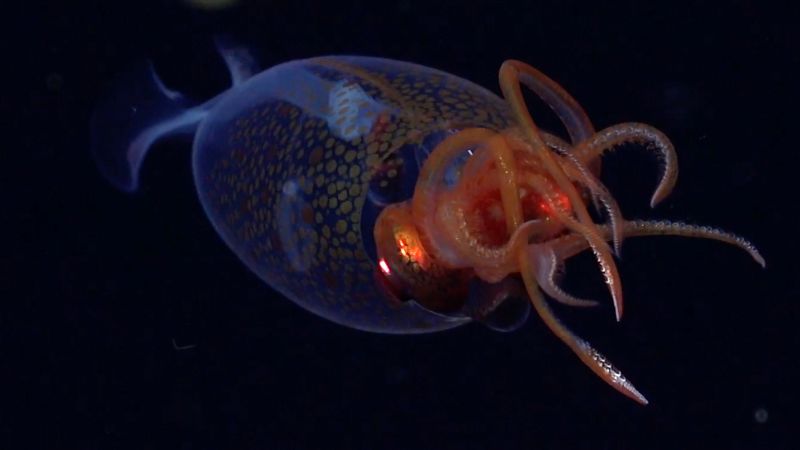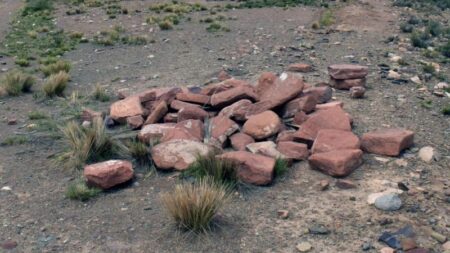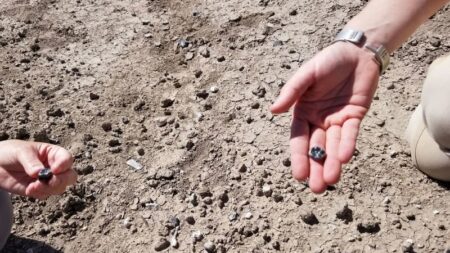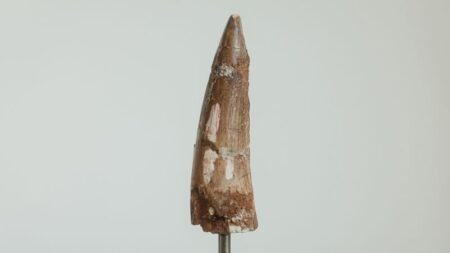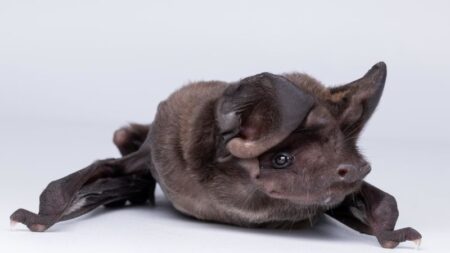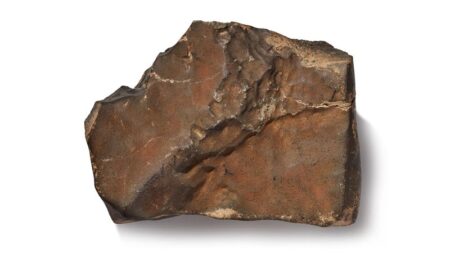Scientists from the Schmidt Ocean Institute have made a groundbreaking discovery by capturing the first confirmed footage of the elusive colossal squid in its natural habitat, nearly a century after the species, known scientifically as *Mesonychoteuthis hamiltoni*, was initially identified. This remarkable achievement was documented during an expedition near the South Sandwich Islands in the South Atlantic Ocean. The captured video featured a juvenile specimen swimming at a depth of approximately 1,968 feet (600 meters).
The high-definition footage was obtained using a remotely operated vehicle named SuBastian, deployed from the research vessel Falkor (too) during the expedition held in March. The colossal squid is known to grow to lengths of up to 23 feet (7 meters) and can weigh as much as 1,110 pounds (500 kilograms), making it the heaviest invertebrate on Earth. However, the juvenile squid seen on film measured only about 1 foot (30 centimeters) in length.
In the video, viewers can observe that the squid has transitioned from some of its juvenile characteristics, such as its stalked eyes. According to Dr. Aaron Evans, an authority on the Cranchiidae family of squids, the squid’s eyes are now less protruding and more aligned with its head. Dr. Evans, along with Dr. Kat Bolstad, an associate professor at Auckland University of Technology in New Zealand, independently verified the species’ identification.
Describing the specimen’s developmental stage, Dr. Evans remarked during a press conference that the squid could be viewed as a “teenager,” indicating it has not yet reached maturity. He expressed excitement over the unique opportunity to study a specimen that is neither a hatchling nor an adult, which offers crucial insights into the life stages of this largely mysterious species.
The expedition did not stop there; an earlier expedition in January aboard the Falkor (too) also captured footage of a previously unseen glacial glass squid—another significant first. Dr. Jyotika Virmani, the executive director of the Schmidt Ocean Institute, highlighted how the simultaneous sightings of two squid species on consecutive expeditions demonstrate the vast opportunities for discovery within the Southern Ocean, emphasizing how little is known about its myriad inhabitants.
Understanding the life cycle and behavior of the colossal squid remains a challenge for scientists. Most existing knowledge about the species has come from deceased specimens found in the stomachs of larger marine animals like whales and seabirds or from its role as a predator of harvested toothfish. However, these new visual records open fresh avenues for research and understanding.
This expedition was a collaboration involving multiple organizations, including the Schmidt Ocean Institute, the Nippon Foundation-Nekton Ocean Census, and GoSouth, which incorporates institutions like the UK’s University of Plymouth and GEOMAR Helmholtz Centre for Ocean Research in Germany. The collaborative spirit surrounding the research underscores the importance of pooling expertise to uncover the mysteries of lesser-known marine life.
Drs. Bolstad and Evans meticulously examined the video, searching for vital identifying features of the colossal squid, such as the arrangement of its eight shorter arms and two longer tentacles, which are equipped with hooks. As Evans recalls, realizing the presence of these hooks in the juvenile squid was a moment of overwhelming excitement for him, as he has dedicated years to the study of deep-sea squids.
Bolstad emphasized the fragility of the squid and compared its translucent appearance to that of a glass sculpture, noting that seeing these animals thrive in their natural, delicate conditions is a poignant reminder of the mysteries that still lie within the uncharted depths of our oceans. Additionally, the squid’s mantle exhibited large rusty red-brown chromatophores, which are cells that enable color change, hinting at the animal’s ability to switch between transparency and opacity—a hypothesis that has now gained more support through direct observation.
Notably, Bolstad clarified the distinction between the colossal squid and the giant squid. While the colossal squid inhabits the Antarctic and sub-Antarctic regions, the giant squid is distributed across various global oceans. The research and observations conducted during these expeditions represent significant strides in understanding these remarkable cephalopods and their roles within the oceanic ecosystem.
As research moves forward, the Schmidt Ocean Institute plans to continue its explorations in the South Atlantic Ocean for the next four years, while also highlighting that the research vessel will not return to Antarctica until 2028. The high-resolution footage from these explorations is made available to the public through live streams on the institute’s YouTube channel, allowing audiences to witness ongoing discoveries in real time and appreciate the beauty and complexity of deep-sea life.
Dr. Bolstad stated, “Now that we have the ability to share dives in real time and show people how beautiful the things are, how many things remain to be discovered… I feel like our ability to appreciate the deep sea is moving towards where it should have been all along,” emphasizing the importance of engaging the public in marine exploration and conservation efforts. The excitement surrounding these findings






